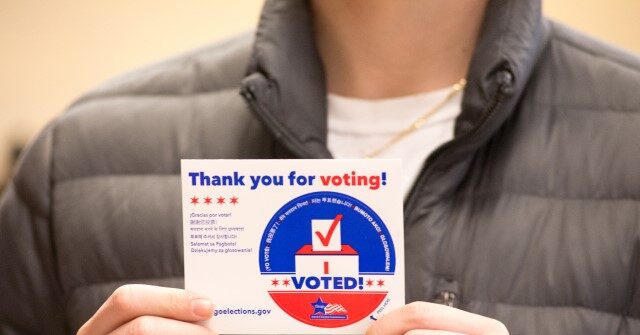The Republican National Committee (RNC) is placing a strategic emphasis on engaging “low propensity voters,” a demographic that the RNC believes can significantly impact election outcomes. According to RNC Chairman Michael Whatley, during a recent interview on Breitbart News Daily, this approach is already yielding promising results, with voter turnout significantly exceeding levels seen in previous elections. Low propensity voters are categorized as individuals who are likely to support Donald Trump if they choose to vote but have not participated in elections over the past two to six years. By concentrating efforts on this specific group, the RNC hopes to mobilize them to participate in upcoming elections.
Whatley elaborated on the methods being employed to reach these low propensity voters, highlighting a multifaceted strategy that includes door-to-door canvassing, phone outreach, direct mail campaigns, and digital communications such as emails and text messages. This comprehensive approach is aimed at better connecting with individuals who may not be regular voters but are identified as favorable to Republican candidates. The RNC believes that these targeted methods will enhance voter engagement and turnout, thereby improving their electoral prospects in crucial states.
The initial feedback from key battleground states like Georgia, North Carolina, Arizona, and Pennsylvania indicates that the RNC’s efforts are resonating with low propensity voters. Whatley shared that early assessments show a notably positive response from this demographic, suggesting that their outreach initiatives are taking hold. With the political landscape constantly shifting, the RNC’s focus on low propensity voters is seen as a proactive measure to secure votes that might otherwise go uncast.
Whatley expressed optimism about the overall voter turnout among this demographic, stating that their participation levels appear to be significantly higher than historical trends have suggested. He emphasized that the RNC has been working diligently for the past six months to build a framework that effectively mobilizes these voters, which could be crucial in determining the outcome of the upcoming elections. By actively identifying and reaching out to these individuals, the RNC aims to change the dynamics of voter turnout.
Despite the positive early indicators, Whatley acknowledged that their teams are still analyzing comprehensive data to gain a clearer perspective on voter behavior. Nevertheless, he remains confident that the engagement of low propensity voters will play a vital role in the Republicans’ electoral strategy. The ability to draw in these voters could prove essential in close races, where every vote counts and the participation of previously disengaged individuals can tip the balance.
Ultimately, the RNC’s renewed focus on low propensity voters reflects a broader strategy to adapt to changing demographics and voting patterns in America. As both political parties strive to harness the energy of the electorate, the RNC’s effort to cultivate relationships with these non-regular voters signifies an ongoing evolution in campaign tactics. Their concerted approach may not only boost turnout for Republicans but also reshape the political landscape in key electoral battlegrounds, demonstrating the potential of targeted outreach and voter mobilization efforts.

